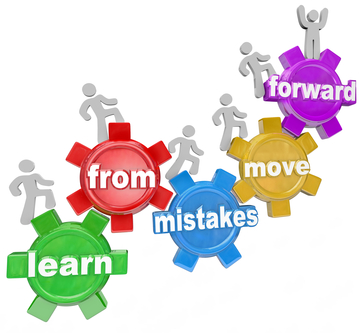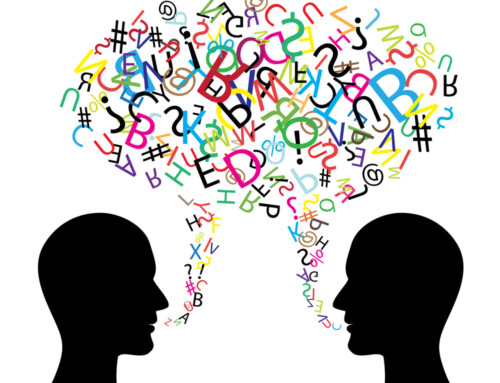 How many of us think about our past mistakes when trying to create a better future?
How many of us think about our past mistakes when trying to create a better future?
We have all heard about people:
- Losing everything when their uninsured home burns down
- Insuring newly acquired personal valuables after the older, uninsured ones disappeared
- Taking out long-term care insurance later in life, when it’s more costly, after watching a family go through much of their resources while taking care of a sick relative
We cannot take out insurance on our marriage. However, we can take a closer look at ourselves, get a better understanding of why we chose that particular partner and why it did not turn out as we would have wished.
Statistics show that about 50% of first marriages end in divorce but that percentage increases for second marriages. Why is that?
Because people often repeat the same mistakes. They choose a new partner for the same wrong reasons that they may have chosen the previous one.
If you are willing to be honest with yourself and understand why you did what you did, you will have a better chance the second time around.
Here are just a few examples of questions you may want to ask yourself:
- Were there any underlying issues that I rationalized in order to convince myself this was the right person?
- Was I looking for someone else to make me happy because I was not happy with myself?
- Was I dealing with unresolved issues about myself?
- Was I trying to escape my family situation?
- Was I just interested in material things, financial security, a nice home, a fancy lifestyle?
- Did I accept that the other person was lacking many characteristics that were important to me because I thought I could make him/her change?
- Was I untruthful and did I paint the wrong portrait of myself in order to look more desirable?
If you have been in similar situations, please feel free to share some of the ways you convinced yourself to justify your marriage. It just may help other readers who find themselves in the same boat.
Comments from Social Media
Thank you, Jennifer. You’ve set out some key points for us to consider that are relevant in all our long-term relationships.
Michael Lang
_________________________________________________________________
“Jennifer You are right. We want to look at our past and try to understand and learn from it, however sometimes we get comfortable in our old ways and stay there is always new ways to grow and develop, preferably together.”
Dana Greco
_________________________________________________________________
Jennifer this is my second and last marriage (hello priesthood if it ends) and I think the best thing my wife suggested for us was go to marriage counseling before getting married. We both had similar marriage and did not want to make the same mistakes. The other piece to our marriage is that we support each other and to me that is the key for any marriage. We are developing a business because of past experience. So yes we can benefit:)
Tommy Maloney
_________________________________________________________________
Jennifer, all good questions that need to be asked and/or explored in family and divorce mediation. Discussions regarding these questions may expose all parties to answers they were reluctant to recognize or accept.
Gary Kloepfer
_________________________________________________________________
We can absolutely benefit! I believe we are all connected and the greatest life lessons are learned from those who cause us the most anguish. Use your testimony to pave the way for those coming behind you!
Kelley Linn
_________________________________________________________________
I wholeheartedly agree that there are lessons we can learn from our past experiences – not the least of which are failed relationships. This is something I endeavor to teach the fathers that work with our program. It’s certainly something I wish I’d taken advantage of after I got divorced and before I remarried. If we don’t examine the baggage we’re carrying we may find out way too late that we didn’t properly pack for the new journey.
Ken Sanders
_________________________________________________________________
“You might not believe yet, I believe past is past, yes we can look back and stop moving forward.
On the other hand I strongly agree some of us we learn from our experiences after all”
Razi Ghaemmagham Farahani
_________________________________________________________________
We focus so much on our clients’ needs and how we can use or talents and experience to support them in addressing their conflicts. I read Jennifer’s piece as a reminder that we too can benefit from examining our past experiences. We can use those events, personal and professional, to deepen our understanding of our work, infuse our approach with new insights and skills, and ultimately become more competent and caring professionals. To do this requires a commitment to self-examination that is as ego-less as possible, with the intention of learning and growth. To do this means more than recounting stories and events; it requires a thoughtful assessment of what works and what doesn’t–and most importantly searching for an explanation of why.
Michael Lang
_________________________________________________________________
Definitely, looking back on our past experiences, good or bad, with an objective perspective can provide information to learn more about ourselves and how to recognize when or if we need to make adjustments in regards to our choices and decisions. Reflection on our past events can offer epiphanies and new insight about who we are as a person and what we are made of and who we may want to be. But dwelling in the past and reliving negative emotional feelings that may elicite thinking errors would not be a learning experience. If this is the case, then an objective point of view may not be realized at this point.
Andrea Powell
_________________________________________________________________
Absolutely. I learned many lessons in a ten year awful marriage that have helped me to enjoy over 30 years of marital bliss in my second marriage. the lessons were so powerful i wrote them down in my book Love Lessons.
Terry McDonald
_________________________________________________________________
Since it is impossible to change the past there is nothing we can do about it. The past can be used as a guideline for preventing future related events. I believe the past can make us into extraordinary future beings as well as break us. This only happens if we allow the past to control our possibilities.
Norma Chin
_________________________________________________________________
An “opportunity mindset” is the ability to understand the past to change the future. When a parent is emotionally triggered by a child or a husband/wife is triggered by their spouse, this is an opportunity to learn about oneself,rather than point the finger at the other person. You can learn about; 1)your mindset-your perception of self and others; 2)emotions being triggered and how they relate to past wouinds; 3)your relationship history-patterns from your family-of-origin; 4)self-talk-internal dialogue and narrative; 5)coping strategies-ways of responding to anger,rejection,conflict,frustration,etc.; and 6)body signals-physical reactions to stress.
Terry Levy
_________________________________________________________________
I’ve learned some of my most significant lessons from my mistakes and negative effects of my life. Thank you Jennifer for sharing this piece. Hope all is well, and Happy New Year!
Christina Nitshchman
_________________________________________________________________
Treat failure as a learning experience that will get you on the road to future success. The greatest mistake is taking it personal when it is business related.
Robert Stein
Jennifer Safian
divorce and family mediation
upper east side of manhattan (nyc)
new york, ny
(917) 881 5206
jpsafian@gmail.com
Latest posts by Jennifer Safian (see all)
- misinterpreting your partner’s demeanor may lead to conflict - October 9, 2024
- demystifying the money talk - September 11, 2024
- why are we afraid to discuss money? - August 21, 2024





In addition to the points you make, I wonder how many divorces include the following dynamics: either the male or the female spouse where abused/sexually molested as a child and as a result divorced, often when their spouse started aging and perhaps graying which reminded them of there abuser?